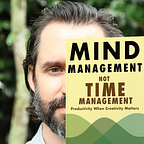Tease creative solutions from your brain with the four stages of creativity
It’s very easy to get focused on trying to find a creative solution, especially when there’s a deadline staring you down. But the more I’ve created, as a designer, a writer—even learning dance, or a foreign language—the more I’ve noticed that creativity comes easiest when gently coerced from your psyche.
In his 1926 book, The Art of Thought, social psychologist Graham Wallas suggested a four-stage model of creativity.
- Preparation: Investigate the problem in all directions. (I’d add that this can also just be the collection of information—driven by curiosity—without a problem in mind.)
- Incubation: Allow the unconscious mind to work on the problem. This can be done through disconnecting from the problem completely, or through working on other projects.
- Illumination: A solution appears with a sudden flash, and a feeling of euphoria. Neuroscientists have since identified “insight” as a neurologically distinct phenomenon in the brain. You can’t reliably force insight, but you can create the conditions for it, and “roll the dice” by practicing a creative habit.
- Verification: Evaluate the solution to see that it meets the criteria you set out in the “Preparation” stage.
By being aware of the various stages of reaching a creative solution, you can prevent yourself from getting creatively stuck. Don’t approach creative problems immediately looking for a solution. Massage the raw materials into your brain, allow your unconscious to incubate, and make a habit of looking for solutions. Finally, take care of the details, with your leftover energy.
Getting Art Done will help you boost your creative productivity and make your masterpiece. Sign up for updates.
